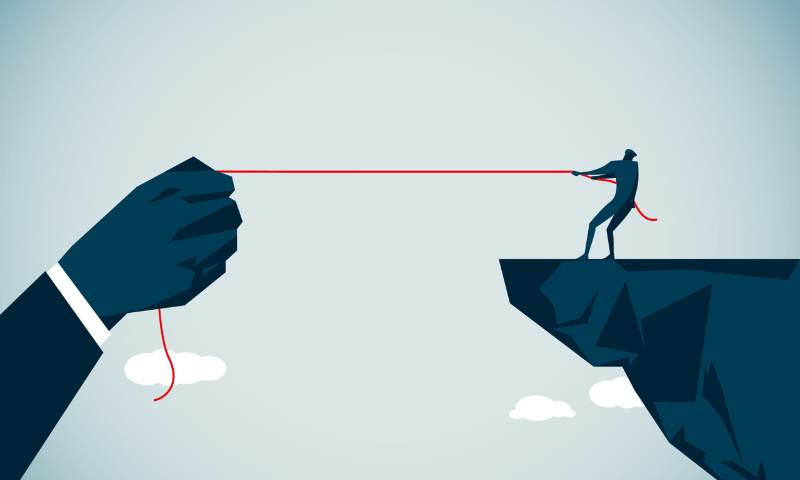Regulating Digital Platforms: Navigating the Sea of Unintended Effects
In this sea of tech and trends, what are the potential consequences of regulating digital platforms? It’s not just about rules. It’s about the shifts that could shake the very core of how digital markets and competition play out. Picture the balance beam where antitrust stands on one end, and innovation hustles on the other. And think about the small fish in this big pond – the startups and tiny firms that hustle each day. They could swim or sink. Then there’s content – the vast, wild jungle of words and images. We need to know who’s the boss of what ends up on our screens, and how this dance between free speech and regulation pans out. And let’s not get started on costs. Oh, wait, we should! The price tag on staying in line with new rules isn’t the same for all. How fair is that? Finally, there’s the giant wave of effects on our digital world and how we, as users, fit into this landscape. Each click, each share, you’re part of a bigger picture – one of trust and global puzzles we’re all trying to solve. Strap in; we’re diving deep into these waters.
The Impact on Market Dynamics and Competition
Balancing Antitrust with Innovation
We find ourselves in new waters with digital platform regulation. Everyone’s eye is on big tech. They wonder, “Will new rules slow them down? Will they stop being so creative?” Let’s dive into this sea of unknowns. First, we think about fairness. It’s not right if one big company controls too much. This hurts choice and prices for all of us. Yet, we need these tech giants to keep making cool stuff. New gadgets and apps make life better. We’re looking for that sweet spot where no one’s too big, and everyone keeps making great things.
Antitrust laws are like referees in this game. They watch the players to make sure no one cheats. The goal is to keep the game fun and fair. When it works right, new companies can join in, and we get more options. This keeps everyone, even the big players, on their toes.
The Future of Small Businesses and Start-ups
Now, let’s talk about the little guys. Small businesses and start-ups. They are the heart of what makes tech fresh and exciting. They bring new ideas that can change the game. But when there are giant players, it’s tough for the small fish to swim. These new rules could make it easier. Or they could add more hoops to jump through. Costs to meet all the rules might be too much for them.
Yet, here’s a chance for things to get better. If a start-up knows the big guys can’t push them around, they might take more risks. They could come up with something no one has seen before. That’s what we need. Innovation that keeps our tech world buzzing.
What’s next is key. We’ll need clever people watching and tweaking the rules. They’ll have to listen to everyone, big and small. This way, we make sure the path stays clear for new ideas. It’s a balance. We need the new, but we can’t let it stamp out the cool things we already have.

Navigating the Sea of Unintended Effects
Content Moderation Laws vs. Freedom of Speech
What happens when we try to control what is said online? We face a tough balance. Laws on content moderation aim to clear the web of harmful stuff. They stop lies, hate, and danger. But they can also bump into our right to speak freely. This struggle is at the heart of regulating social media.
For example, take the big platforms we use every day. They’re caught in a tight spot. They must weed out the bad while not stepping on free talk. Laws mean well, often wanting to protect us. Yet, they can have a weighty flip side. Us users could find our posts removed for reasons we don’t get. This can spark a big fuss about who decides what we can say online.
Ensuring Data Privacy While Regulating Content
Now, let’s chat about our private info online. Keeping it safe is a big deal. Regulating content means platforms must watch what gets posted. To do this well, they sometimes peek at our private chats or shares. This can make them know too much about us, which feels creepy.
Privacy matters, a lot. It’s about feeling safe and controlling our online footprints. New rules try to guard our data from nosy eyes. But these rules can push costs up for platforms. And that’s not all. They can slow down how new ideas grow in the tech world.
There’s this thing called GDPR impact on platforms. It’s a set of rules to keep our info safe. It’s good, but it also means platforms have to work harder to play nice with these rules. And when they slip up? Big fines can hit them hard. This scares many platforms, both the giants and the smaller guys trying to grow.
Also, when governments step into tech, it gets complex. Every country thinks differently about what’s private and what’s okay to share. So, running a global platform means juggling lots of rules. That’s a headache for sure.
In the end, we want the internet to be safe and fair. We need clear rules for what’s okay to post and share. We want our private chats to stay just that—private. But we also don’t want to lose our voice in all the noise of rules. It’s a tricky sea to sail, but we must find a way. Because what happens online, doesn’t just stay online. It touches us all, in real ways, every single day.

The Cost of Compliance and Its Implications
Assessing Compliance Costs for Diverse Platforms
When we talk about new rules for tech companies, we often miss one big thing. What does it cost for these companies to follow these rules? Not every company is the same size or has the same money. Bigger companies like tech giants can handle these costs better. But what about the small ones? They might not make enough money to cover these costs. This can be tough for start-ups or small online shops.
Following the law costs time and money. Each new rule means companies might need to hire more people. They might need to build new tech to make sure they do not break the law. This can slow down how fast they make new things. It can also make it hard for new companies to come into the market. People with new ideas might find it too hard and give up.
Platform Accountability and Transparency in Algorithms
Next, let’s think about how these platforms use algorithms. These are the secret rules that decide what you see online. Have you ever wondered why you see some posts but not others? That’s the algorithm at work. Some people think these rules should not be secret. They say if we know how they work, we can make sure they are fair.
For instance, let’s say you are looking for a job online. You should see all available jobs, not just some. If someone only shows you some jobs, you might miss out. This could happen because of how the algorithm is set up. That would not be fair, right?
Now, the law might tell these companies to explain how their algorithms work. This could be good for us because then we know the game is fair. But for the companies, this can be hard. They need to check their algorithms and explain them in a way everyone understands. This can take a lot of work.
These two things – the cost of following rules and making algorithms clear – are just part of the puzzle. Together, they show why regulating digital platforms is not simple. It is like throwing a stone in a pond. You see the ripples spread out. These rules do not just change one thing. They can change a lot of things that might surprise us.
Taking care of these challenges is important. But we need to think about how these rules impact everyone. This means not just the big companies, but also the small ones, and even us, the users. It is a balance. We want to keep the internet a place where ideas can grow. We also want it to be fair and safe for everyone. With smart laws and careful thinking, we might just get there.

The Ripple Effects on Digital Economy and Society
User Data Protection and Its Influence on Consumer Trust
When platforms tighten up on user data protection, trust grows. People want to know their personal info is safe. So, when they see a company taking steps to protect their data, they’re more likely to use that platform. It makes sense. If you trust someone with your secrets, you’re likely to stick around. This is the heart of why data protection is a huge deal.
But it gets tricky. Too strict, and companies hit a wall. They find it hard to offer personalized experiences. That’s what customers also love. Finding that balance is key. It makes users feel secure and valued. You get this right, and people will talk. They share their good experiences. This can lead to more users and more sales for the platform.
The International Puzzle: Global Regulation Differences
Now, let’s sail across the seas of global regulation. It’s like a giant puzzle. Every country has its own rules for digital platforms. Yes, every single one. That means a platform used all over must dance to many tunes. It’s no small task. Take GDPR in Europe for instance. It sets tough rules on data privacy. A platform might nail it in Europe, but then it needs a new strategy for the USA or Asia.
Why does this matter? It shapes how platforms grow. It can slow them down or change their course. A platform might boom in one country but struggle in another. All because of different laws. This doesn’t just affect the big fish in the tech pond. The smaller ones, the start-ups, they feel this too. Sometimes even more.
Governments want to protect their people. But they also want to let new ideas blossom. It’s not easy to do both. Some say too much control might strangle innovation. Others think strict rules keep the tech giants in check. It’s a debate that’s far from over.
The sea of digital regulation is vast and changing. We navigate it best by understanding both the calm and the storms. User data protection can build trust and bring success. But the global puzzle of laws? That’s a challenge waiting for clearer maps.
Today we dove deep into how tech laws shake up markets and affect us all. We looked at how rules impact big and small companies and change the game. Innovation and fairness must go hand in hand for a healthy market.
We also tackled the tough job of keeping online spaces safe without stepping on free speech. Protecting personal details is key while we set these boundaries.
Costs that come with playing by the rules cannot be ignored. They change how platforms work and help us trust the digital world more. We need to see how they crunch the numbers and make decisions.
Last, we talked about how these changes ripple out. They build trust in tech and touch lives across the globe. Each place has its rules, and that’s no simple puzzle.
In the end, while these laws aim to fix some big problems, they’re not perfect. They stir up many challenges we must face. But one thing’s clear: we’re all in this together to shape a digital world that’s fair, safe, and holds promise for tomorrow.



